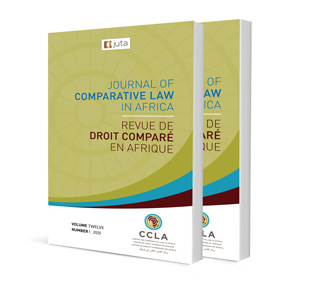
Towards an Enabling Regulatory Environment for Fintech Startups in Africa: Lessons From Nigeria
Author: Albert Chris Puja
ISSN: 2521-2605
Affiliations: LLB (Unizik), LLM cum laude, LLD (UWC)
Source: Journal of Comparative Law in Africa, Volume 12 Issue 1, p. 146 – 189
https://doi.org/10.47348/JCLA/v12/i1a4
Abstract
This article examines how regulatory environments in Africa can be reformed to support fintech startups better, using Nigeria as a case study. Fintech startups are increasingly important in advancing financial inclusion, promoting competition and enabling innovation in African financial sectors. However, they face regulatory challenges that are sometimes overlooked in broader fintech discourse. These challenges include regulatory uncertainty, lack of tailored licensing regimes, fragmented oversight, and excessive compliance burdens. The article outlines the main elements of the regulatory environment in which fintech startups operate. These include policy frameworks, regulatory frameworks, institutional arrangements, and innovation-enabling mechanisms. It then explains how gaps in these frameworks create barriers to entry, restrict growth and increase regulatory complexity for fintech startups. The case study of Nigeria shows that, although policymakers and regulators have introduced a national fintech strategy, strengthened institutional capacity, established innovation facilitators and introduced tailored regulations, the regulatory environment remains characterised by some outdated laws, fragmented legal frameworks and flaws in regulatory co-ordination. The article proposes targeted reforms to address these issues and strengthen the regulatory environment. These proposals offer practical guidance for other African countries seeking to support their fintech startups more effectively. The article argues that an ideal regulatory environment enables fintech startups to thrive while upholding key regulatory objectives such as financial stability, financial integrity and consumer protection. Further, any reform to improve the regulatory environment must consider local conditions, including institutional capacity, resource constraints, and the maturity of the domestic fintech ecosystem.